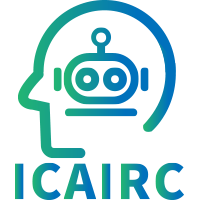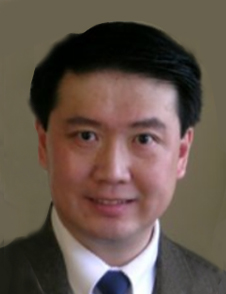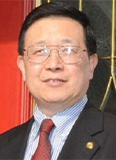
Keynote Speaker
Prof. Juyang WengIEEE Life Fellow Brain-Mind Institute and GENISAMA, USABio: Prof. Juyang Weng received the BS degree from Fudan University, in 1982, M. Sc. and PhD degrees from the University of Illinois at Urbana-Champaign, in 1985 and 1989, respectively, all in computer science. He is a former faculty member of Department of Computer Science and Engineering, faculty member of the Cognitive Science Program, and faculty member of the Neuroscience Program at Michigan State University, East Lansing. He was a visiting professor at the Computer Science School of Fudan University, Nov. 2003 - March 2014, and did sabbatical research at MIT, at Media Lab Fall 1999 – Spring 2000; and at Department of Brain and Cognitive Science Fall 2006-Spring 2007 and taught BCS9.915/EECS6.887 Computational Cognitive and Neural Development during Spring 2007. Since the work of Cresceptron (ICCV 1993) the first deep learning neural networks for 3D world without post-selection misconduct, he expanded his research interests in biologically inspired systems to developmental learning, including perception, cognition, behaviors, motivation, machine thinking, and conscious learning models. He has published over 300 research articles on related subjects, including task muddiness, intelligence metrics, brain-mind architectures, emergent Turing machines, autonomous programing for general purposes (APFGP), Post-Selection flaws in “deep learning”, vision, audition, touch, attention, detection, recognition, autonomous navigation, and natural language understanding. He published with T. S. Huang and N. Ahuja a research monograph titled Motion and Structure from Image Sequences. He authored a book titled Natural and Artificial Intelligence: Computational Introduction to Computational Brain-Mind. Dr. Weng is an Editor-in-Chief of the International Journal of Humanoid Robotics, the Editor-in-Chief of the Brain-Mind Magazine, and an associate editor of the IEEE Transactions on Autonomous Mental Development (now Cognitive and Developmental Systems). With others’ support, he initiated the series of International Conference on Development and Learning (ICDL), the IEEE Transactions on Autonomous Mental Development, the Brain-Mind Institute, and the startup GENISAMA LLC. He was an associate editor of the IEEE Transactions on Pattern Recognition and Machine Intelligence and the IEEE Transactions on Image Processing. |
|
| Prof. Yingxu WangIEEE Fellow University of CalgaryBio:My research interests are in brain science, brain informatics, cognitive informatics, neuroinformatics, neurocomputing, denotational mathematics, cognitive robotics, and computational intelligence. My lab is developing a coherent mathematical model of the brain at the neuron, physiological, cognitive, and logical levels from the bottom up. Some current results are such as the Layered Reference Model of the Brain (LRMB), the Abstract Intelligent Model of the Brain (AIMB) mapping onto brain’s physiological structures, the Neural Circuit Theory, the Memory Model of the Brain (MMB), and the mathematical model of consciousness. Latest findings in these areas have been applied in neural and cognitive science, clinical studies, cognitive informatics, and computational intelligence. The studies result in novel technologies initiated in my lab such as cognitive robotics, cognitive computers, cognitive knowledge bases, the machine learning engine, and the estimation of human memory capacity. I am the founding Editor-in-Chief of Int. Journal of Cognitive Informatics & Natural Intelligence (IJCINI), founding Editor-in-Chief of Int. Journal of Software Science & Computational Intelligence (IJSSCI), Associate Editor of IEEE Trans. on SMC (Systems), and Editor-in-Chief of Journal of Advanced Mathematics & Applications (JAMA). I’ve served as general chairs/program chairs/keynote speakers in more than 20 international conferences. |

